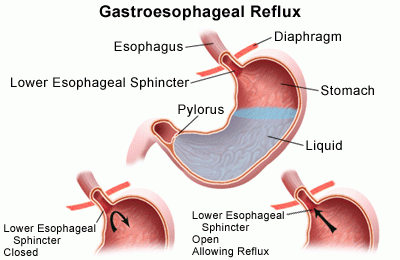Gastroesophageal reflux disease (GERD) is a disorder that affects the lower esophageal sphincter, a muscular valve that separates the stomach from the esophagus. This valve normally prevents food in the stomach from regurgitating back up into the esophagus. Patients with GERD have a weakened sphincter that allows stomach acid to flow back into the esophagus. The esophageal lining becomes inflamed and patients experience heartburn, chest pain and sometimes a sour taste in the mouth. If left untreated, GERD can lead to ulcer formation, bleeding and scarring.

GERD is most commonly managed by medication and lifestyle changes, such as weight loss and diet modification. When these approaches are not effective for controlling a patient's GERD, surgery may be indicated. Surgeons at Weill Cornell Medicine|NewYork-Presbyterian perform a minimally invasive procedure called "laparoscopic Nissen fundoplication" to treat patients with GERD. During this procedure, the weakened lower esophageal sphincter is supported by wrapping the top portion of the stomach around the lower esophagus as a bolster.
Patients undergoing the laparoscopic approach experience less pain and scarring than those who have a traditional open operation. Most patients begin to eat the morning after surgery and can leave the hospital within 48 hours.
Esophageal cancer patient story of Rita Hamilton.